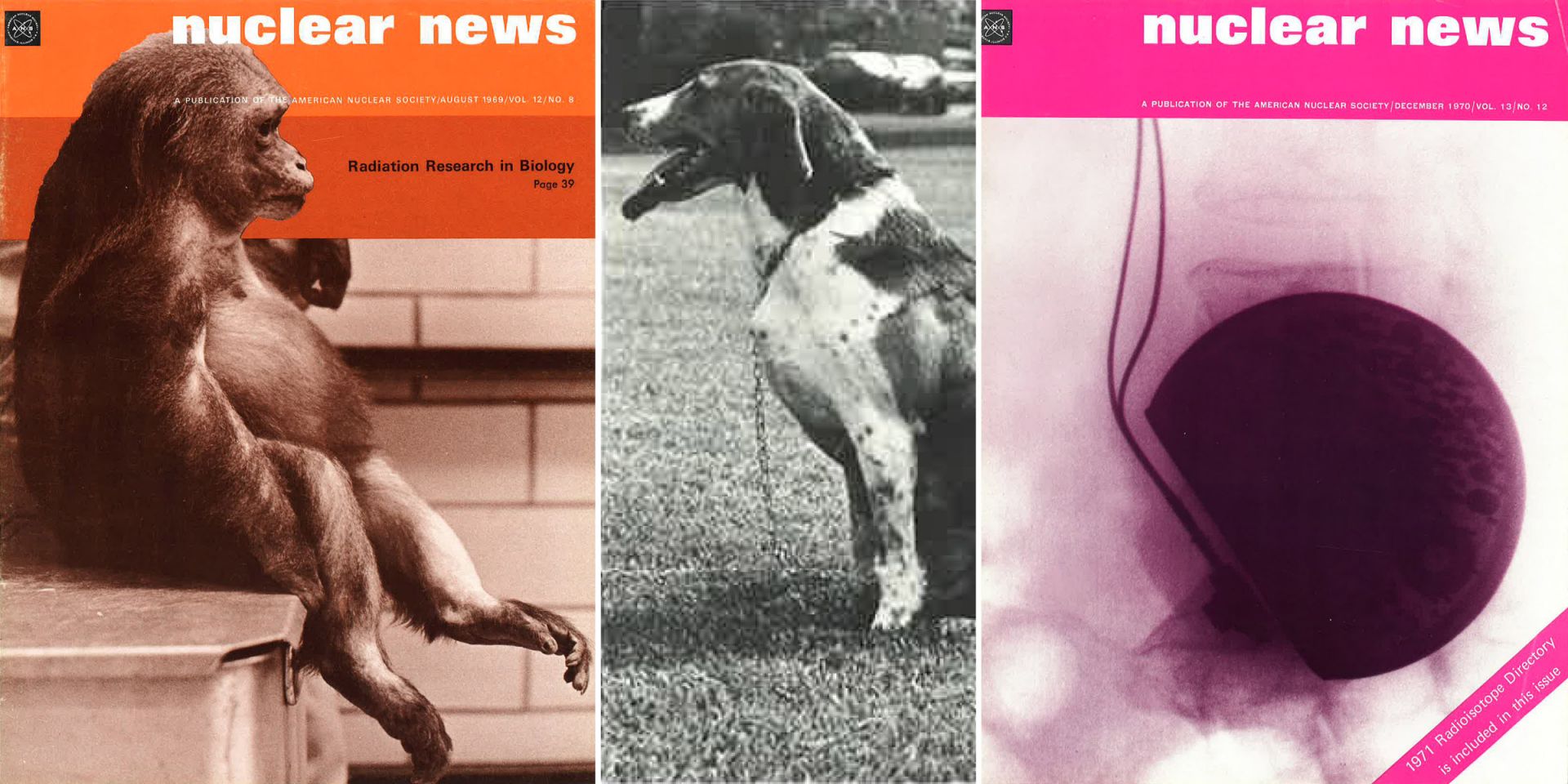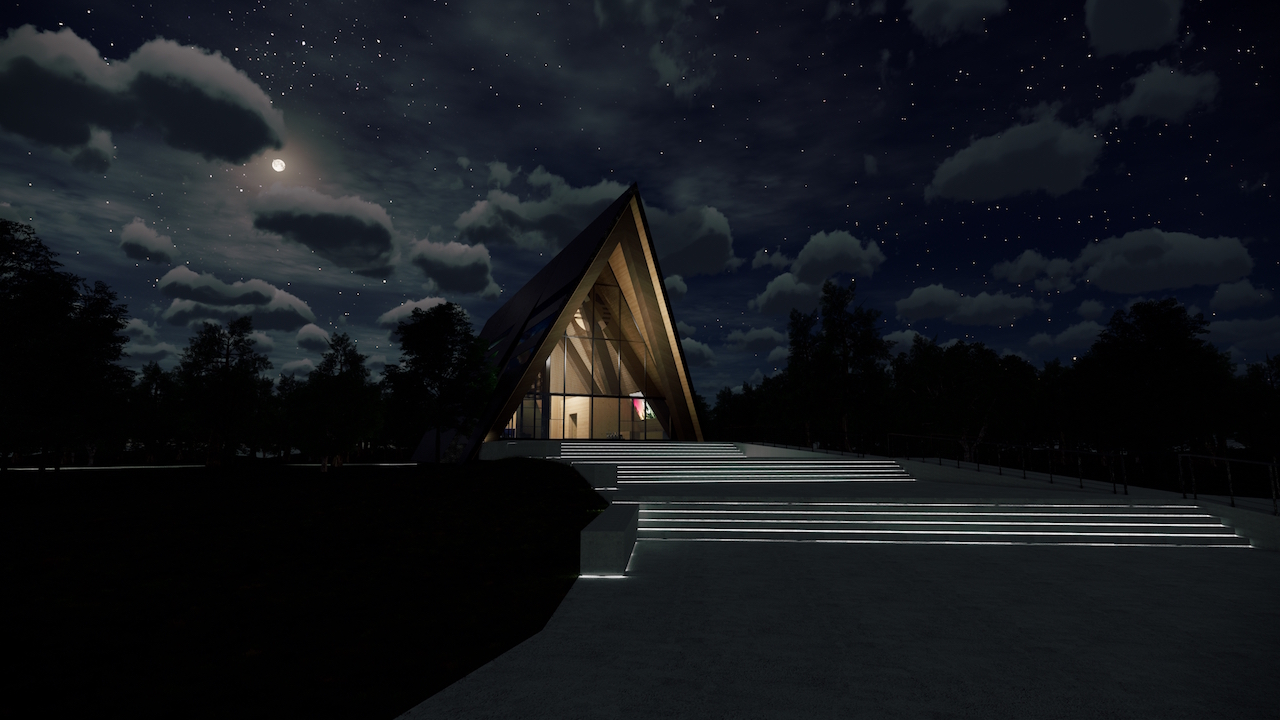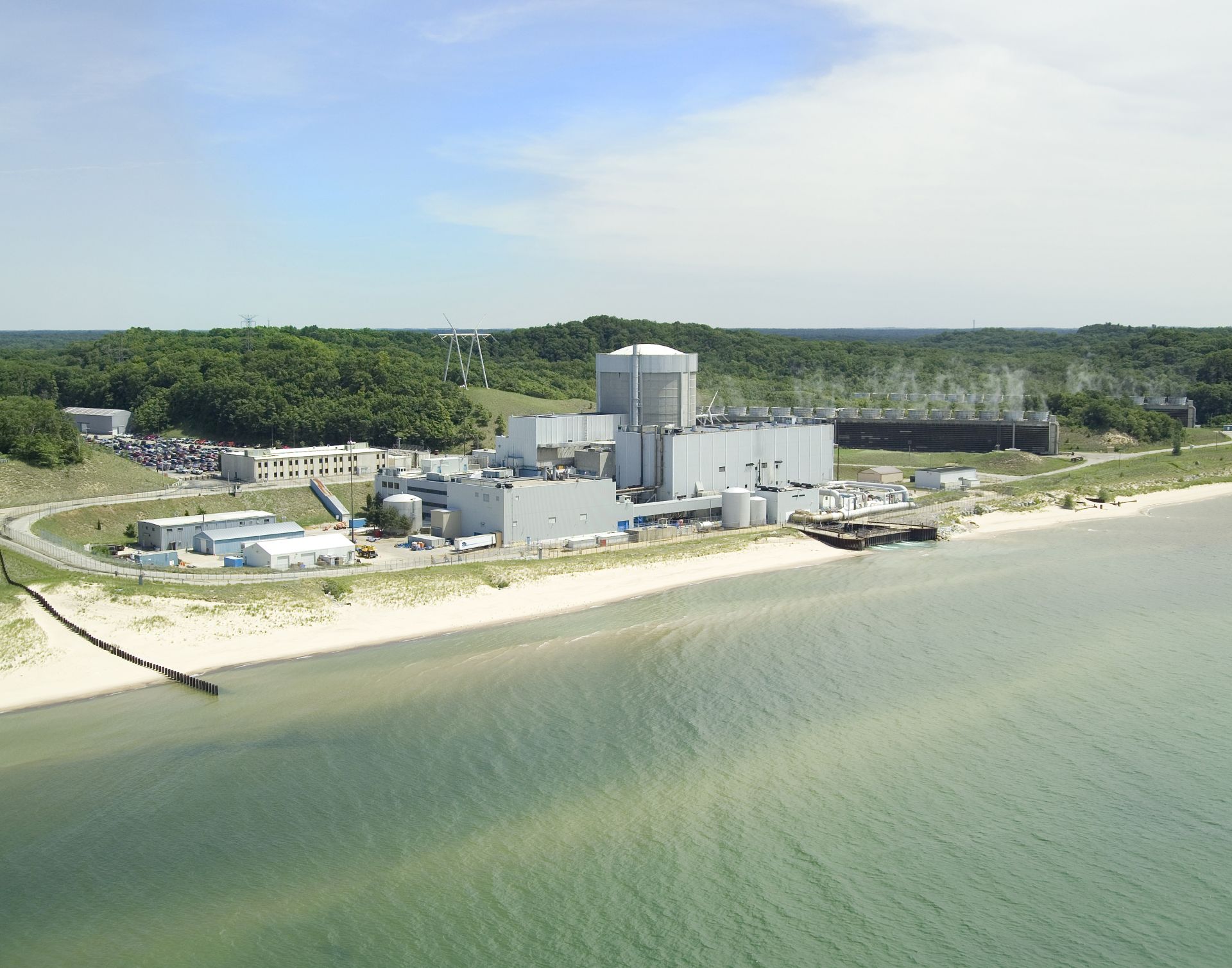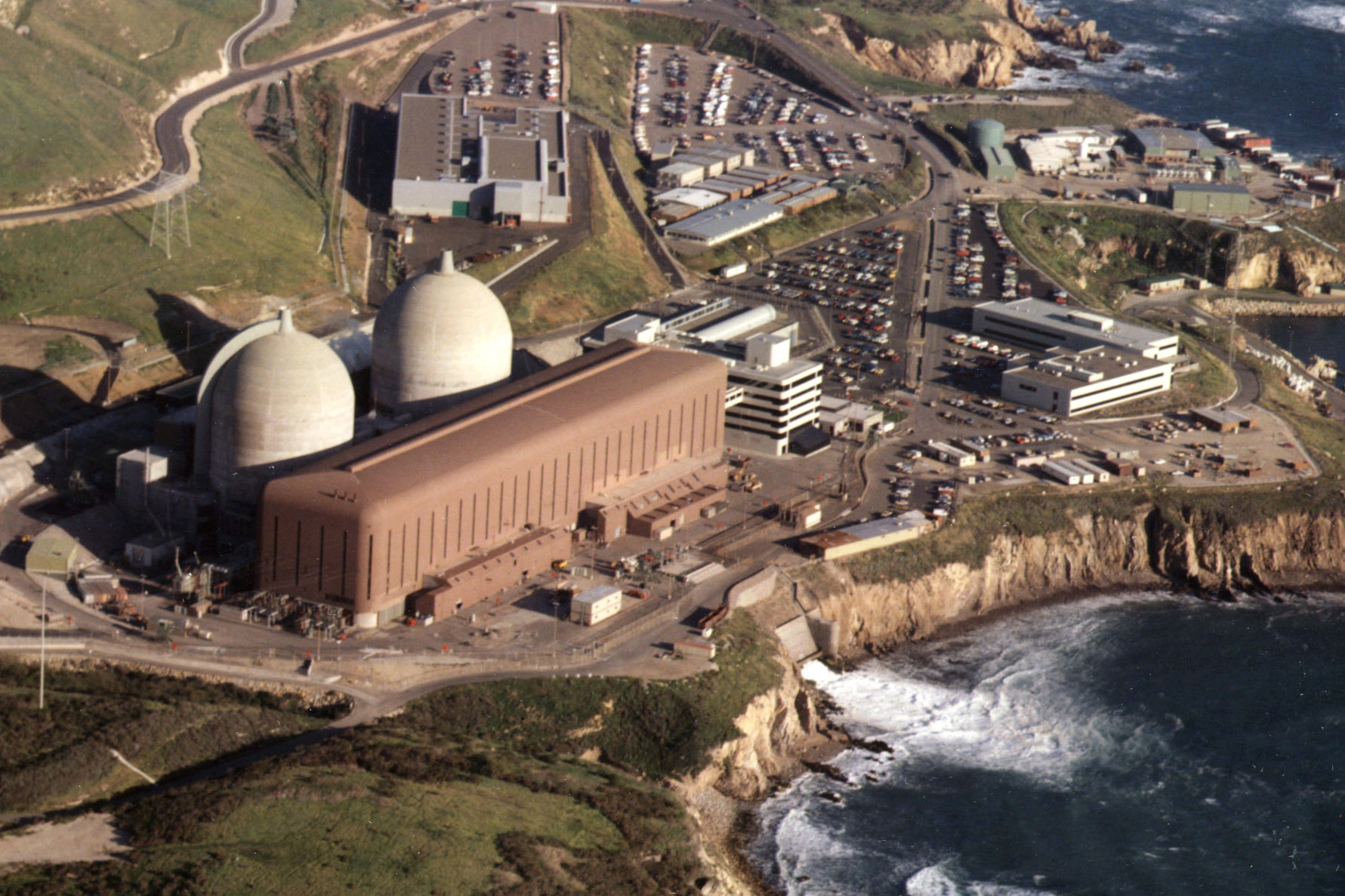The cover of the August 1969 issue of Nuclear News (left), an image of Brunhilde, the dog that had the first nuclear-powered pacemaker in the U.S. (center) and the cover of the December 1970 Nuclear News (right).
In this first installment of a #ThrowbackThursday post, Nuclear News provides a review of radioisotope-powered pacemakers in response to an article in The Wall Street Journal. The article, published earlier this week, looks at the issue of disposing of nuclear-powered pacemakers, although considering how few are still in use today, it seems like this is really much ado about nothing.
An artist's rendition of Oklo’s Aurora powerhouse. (Image: Gensler)
The Nuclear Regulatory Commission has denied “without prejudice” Oklo Power’s application to build and operate its Aurora microreactor in Idaho, the agency announced yesterday. The denial, according to the NRC, is due to the California-based firm’s failure to provide sufficient information on several crucial topics regarding the Aurora design.
Spent fuel casks are loaded at Oyster Creek’s dry storage pad. (Photo: Holtec)
The Nuclear Regulatory Commission has proposed a $150,000 fine for apparent security-related violations at the Oyster Creek nuclear power plant in New Jersey. Oyster Creek permanently ceased operations in 2018, and ownership of the plant was transferred to Holtec Decommissioning International for decommissioning in July 2019.
The Palisades power plant, in Covert Township, Mich.
The Nuclear Regulatory Commission has approved the transfer of the Palisades nuclear power plant licenses from Entergy Nuclear Operations to Holtec International, as owner, and Holtec Decommissioning International (HDI), as decommissioning operator. Holtec and HDI intend to decommission the single-unit pressurized water reactor, located in Covert, Mich., under an accelerated schedule.
Diablo Canyon nuclear plant. (Photo: PG&E)
Last April, Entergy had to close its Indian Point nuclear plant. That’s despite the plant’s being recognized as one of the best-run U.S. nuclear plants. That’s also despite its 20-year license extension process having been nearly completed, with full support from the Nuclear Regulatory Commission.
This closure was due in large part to opposition by antinuclear environmental groups. These groups also mobilized existing negative public opinion on nuclear energy to get politicians to oppose the plant’s license extension. Another factor is unfair market conditions. Nuclear energy doesn’t get due government support—unlike solar, wind, and hydro—despite delivering clean, zero-emissions energy.




















